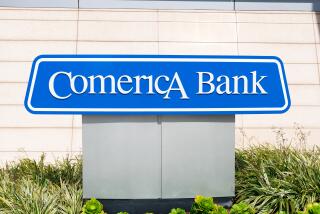What the seizure, sale mean for customers
- Share via
Federal regulators are hoping for a seamless transition after seizing money-losing Washington Mutual Bank and selling it immediately to JPMorgan Chase & Co. late Thursday. They want WaMu customers to know it’s business as usual today.
Here are some questions you may have about your accounts at WaMu:
What will happen to my account?
All deposit accounts, which include checking, savings, money market, retirement and certificates of deposit, have been transferred to JPMorgan Chase, regardless of the dollar amount. No one lost any money that was deposited in WaMu.
Will I have immediate access to my money?
Depositors won’t lose access to any of their money, even if it wasn’t fully insured.
Will my ATM card still work? Can I write checks as usual?
Yes.
Will branches be open today?
Bank branches were to open today as usual. Eventually, the branches will be rebranded as Chase.
I have checks deposited directly into my WaMu account. What happens now?
Direct deposits will continue as usual, including Social Security checks.
What about my loan or mortgage with WaMu?
All mortgages and loans have been assumed by JPMorgan Chase. Your payment amount and due date are the same. Continue to make your checks out to Washington Mutual Bank and send your payments to the same address you have been using. If you are having your payment taken out of your account, it will continue to be taken out.
Will the bank continue to pay the same interest rates on deposits?
All interest on deposits accrued through Thursday will be paid at the same rate. JPMorgan Chase will review rates and will announce any changes soon.
I already have other deposit accounts with JPMorgan Chase. When combined with my balances at WaMu, my deposits exceed $100,000. Are all funds insured?
The accounts transferred to JPMorgan Chase will be separately insured for at least six months after the takeover. This grace period gives a depositor the opportunity to restructure the accounts, if necessary, so that they stay fully insured.
If you have certificates of deposit that mature more than six months from now, they will be separately insured until then.
I’m a WaMu shareholder. How does the takeover affect me?
Shareholders have a claim against the receivership; they have the lowest priority, however. You should discuss this with an accountant or the Internal Revenue Service concerning the requirements for recognizing the investment as a loss for tax purposes.
--
More to Read
Inside the business of entertainment
The Wide Shot brings you news, analysis and insights on everything from streaming wars to production — and what it all means for the future.
You may occasionally receive promotional content from the Los Angeles Times.










